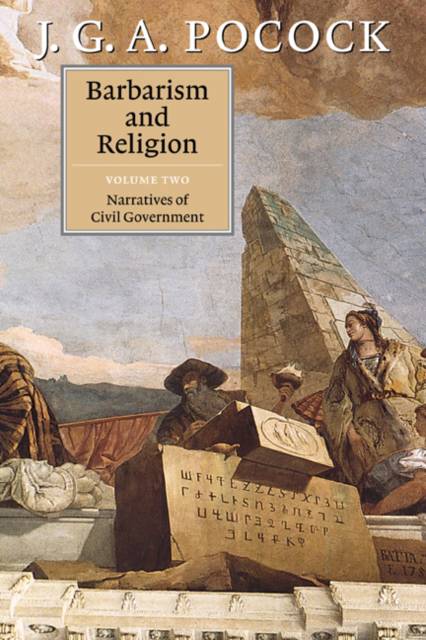
- Afhalen na 1 uur in een winkel met voorraad
- Gratis thuislevering in België vanaf € 30
- Ruim aanbod met 7 miljoen producten
- Afhalen na 1 uur in een winkel met voorraad
- Gratis thuislevering in België vanaf € 30
- Ruim aanbod met 7 miljoen producten
Zoeken
Omschrijving
The second volume of Barbarism and Religion explores the historiography of Enlightenment, and looks at Gibbon's intellectual relationship with writers sucah as Giannone, Voltaire, Hume, Robertson, Ferguson and Adam Smith. Edward Gibbon's intellectual trajectory is both similar but at points crucially distinct from the dominant Latin "Enlightened narrative" these thinkers developed. The interaction of philosophy, erudition and narrative is central to enlightened historiography, and John Pocock again shows how the Decline and Fall is both akin to but distinct from the historiographical context within which Gibbon wrote his great work.
Specificaties
Betrokkenen
- Auteur(s):
- Uitgeverij:
Inhoud
- Aantal bladzijden:
- 440
- Taal:
- Engels
- Reeks:
Eigenschappen
- Productcode (EAN):
- 9780521640022
- Verschijningsdatum:
- 28/10/1999
- Uitvoering:
- Hardcover
- Formaat:
- Genaaid
- Afmetingen:
- 160 mm x 235 mm
- Gewicht:
- 816 g

Alleen bij Standaard Boekhandel
+ 389 punten op je klantenkaart van Standaard Boekhandel
Beoordelingen
We publiceren alleen reviews die voldoen aan de voorwaarden voor reviews. Bekijk onze voorwaarden voor reviews.











